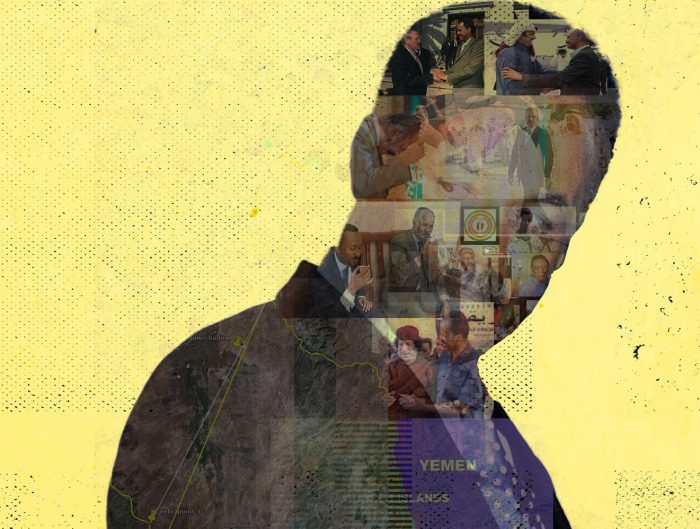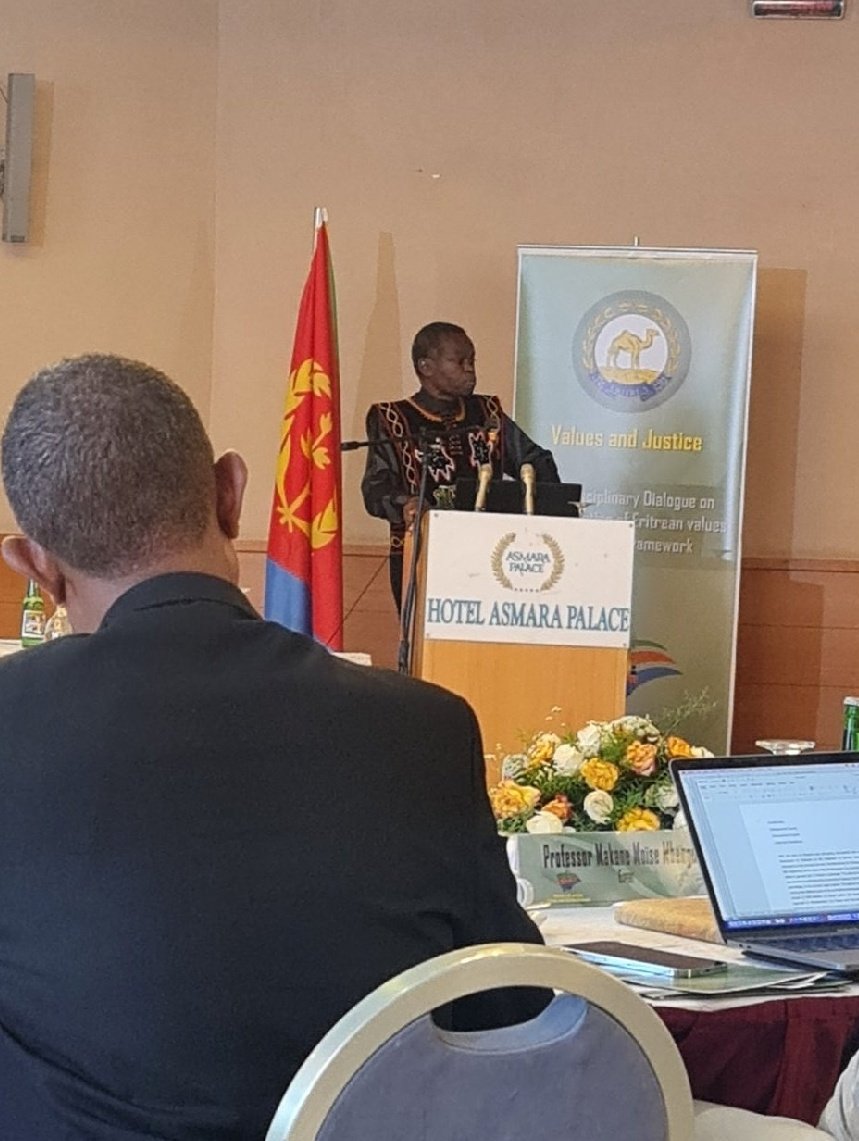On Friday, President Donald Trump signed a proclamation restricting travel from several countries including Eritrea. If you are looking for some Trump-bashing, this article won’t be about that. Nor will it attempt to understand why, if the intent is US national security, tourist, student, and business visas (the preferred visa of terrorists) are allowed whereas immigrant visas (never used by terrorists) are not. The purpose of this article is to show how this will (or won’t) impact Eritreans and, while we are in the neighborhood, Sudanese and Tanzanians. It will attempt to address what the real reasons could possibly be and their likelihood of being addressed.
Scope
For the last year that we have published data, 2018, the United States admitted 894 Eritrean immigrants. Recall that “immigrants” are different from “refugees”: President Trump’s proclamation will NOT impact refugees who are slated to be resettled in the United States. The breakdown of the 894 immigrants is as follows (source):
Immediate relatives: Spouses, parents, and the unmarried children (under age 21) of U.S. citizens (not permanent residents) are classified as immediate relatives. In 2018, the US admitted 449 Eritreans on the basis of this classification.
Family preference: (a) Unmarried, adult sons and daughters (age 21 or over) of U.S. citizens; (b) spouses and unmarried children (under age 21) of permanent residents; (c) unmarried, adult sons and daughters of permanent residents; (d) married sons and daughters of US citizens; (e) brothers and sisters of adult US citizens fall under the “Family Preference Immigrant Visa” category. In 2018, the US granted 269 visas on the basis of this classification. Most of these individuals had waited for years (and years and years) to get this visa.
Employment preference: A type of visa where a US employer says that my employee (or future employee) has unique skills that can’t be met by a US citizen and jumps hoops to prove it (for example: run an advertisement recruiting for the position.) 39 Eritreans received immigrant visa on the basis of this.
Diversity immigrants: This is the famous “lottery.” It is called a “diversity visa” because its intent is (was?) to ensure that the United States had individuals from countries with very low representation. The system rewards those with a high school diploma or its equivalent, are computer literate–the whole application process is electronic–and are able to present biometric data and testimonies from witnesses very fast. In 2018, the US granted 137 “diversity immigrant” visa to Eritreans.
Speaking of “diversity immigrant visa”, for Sudan and Tanzania, this is the only form of immigrant visa that will affect them in the new Trump Proclamation. In 2018, 1674 Sudanese and 38 Tanzanians were granted Diversity Visa. Therefore, Sudan is likely to feel the impact of the policy whereas Tanzanians won’t even know it existed.
Special immigrants: This is an immigrant visa granted to people who don’t fit any of the criteria above but were of special help to the Government of the United States. In 2018, the US granted a total of zero (0) special immigrant visa to Eritreans.
So, in the end, a total of 894 Eritreans were granted immigrant visas in the whole year. Numerically, not high. But from the standpoint of family reunification, the cost of the US decision to suspend granting of immigrant visas to Eritreans will be quite high: painful to many Eritrean families who live separated and whose only hope was to be reunited with their loved ones.
Reason
Because the origin of the Trump Proclamation is a campaign pledge where he said there would be a “total and complete shutdown of Muslims” from entering the United States until the US could “figure out what the hell is going on”, it appears at first glance that the US may have confused Eritrea for a “Muslim majority” country. But the reasons spelled out for the suspension, in the proclamation, are as follows:
(i) Eritrea does not comply with the established identity-management and information-sharing criteria assessed by the performance metrics. Eritrea does not issue electronic passports or adequately share several types of information, including public-safety and terrorism-related information, that are necessary for the protection of the national security and public safety of the United States. Further, Eritrea is currently subject to several nonimmigrant visa restrictions. Eritrea does not accept return of its nationals subject to final orders of removal from the United States, which further magnifies the challenges of removing its nationals who have entered with immigrant visas. Eritrea has engaged with the United States about its deficiencies, but it also requires significant reforms to its border security, travel-document security, and information-sharing infrastructure. Improvements in these areas will increase its opportunities to come into compliance with the United States Government’s identity-management and information-sharing criteria.
(ii) The entry into the United States of nationals of Eritrea as immigrants, except as Special Immigrants whose eligibility is based on having provided assistance to the United States Government, is hereby suspended.”
Context
1. After 9-11, the US had demanded that countries replace their manual passports with electronic passports. The deadline countries were given was six months, which was extended (in six-month increments) for years. For example, Ethiopia took years to transition from manual passport, to a manual passport with a bar code to fully electronic. It had both for two years: the blue and burgundy passports. The point is electronic passports are digitized–biometric data is in the visa and the passport–and cannot be forged, whereas manual (because it has manual writing) can.
2. Eritrea does not have a mechanism for reporting stolen or lost passports to Interpol.
3. Eritrea does not accept Eritreans who have been ordered removed (deportation) by the US government.
4. The average overstay rate for people admitted on non-immigrant visas (business or tourist visas) is 1.9%. For Eritreans, the rate is 24%.
Engagement
The tone presented by the Trump administration does not appear particularly harsh. The Secretary of the Department of Homeland Security (DHS) is quoted by the Wall Street Journal saying: “These countries for the most part want to be helpful, want to do the right thing. But for a variety of reasons, they failed to meet those requirements we laid out.” Many of the requirements are technical in nature, and the sort that can be remedied by a few million here and a few million there from Eritrea’s benefactors (Saudi Arabia, UAE) and those who think “capacity building” is a religion (United Nations.) But for a government which has made selling of Eritrean passports for political purposes one of its tools for staying in power, it wont be easy to make that choice–considering that, from its standpoint, all this will do is inconvenience about 1,000 Eritreans and their families, many of whom are not the kind that come to the ruling party meetings and pledge money.
From the US standpoint, the other area that has to be revised is the Eritrean government’s long-standing policy against accepting Eritreans ordered for deportation. If that policy is reversed, it will mean a terrible future for those deported out since the Eritrean government has shown a long track record of equating harsh treatment with rehabilitation. Eritreans who were deported from host countries have committed suicide rather than face the savage injustice system in Eritrea. (See here and here for evidence.) It would also be one of the most ironic things to happen in politics: officials of the Eritrean government, the same people that the US and the UN had identified as people banned from travel in the 2009 and 2011 sanctions, would now be entrusted and required to enforce travel restrictions and deportation orders of the US meted on Eritrean citizens.
Whether it is the US, Ethiopia, Sudan, or AnyStatistan, States will deal with the Eritrea that we the people tell them, “this is us, and this is our government.” Rather than trying to change the world, we Eritreans should focus on changing our world: ensure that we no longer have a government as morally and every other wayly as bankrupt as the one we have.





Leave A Reply